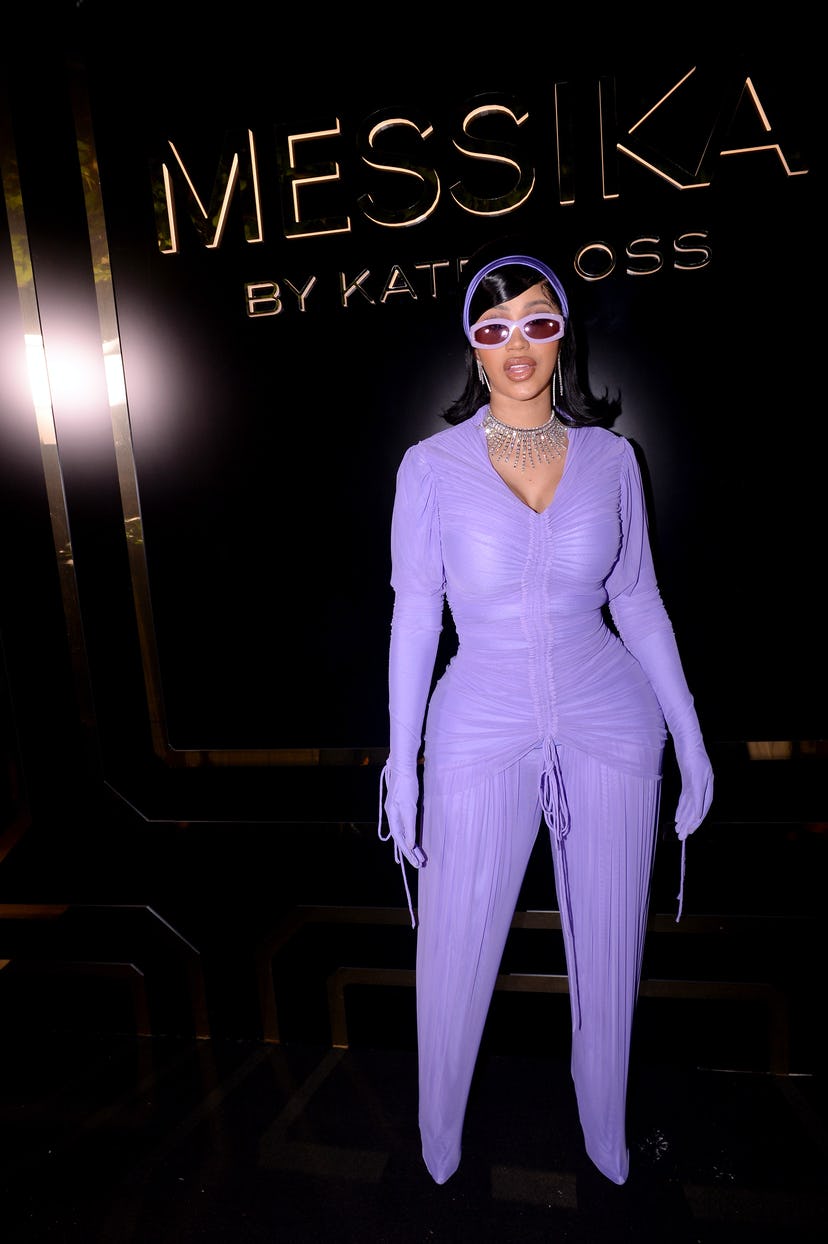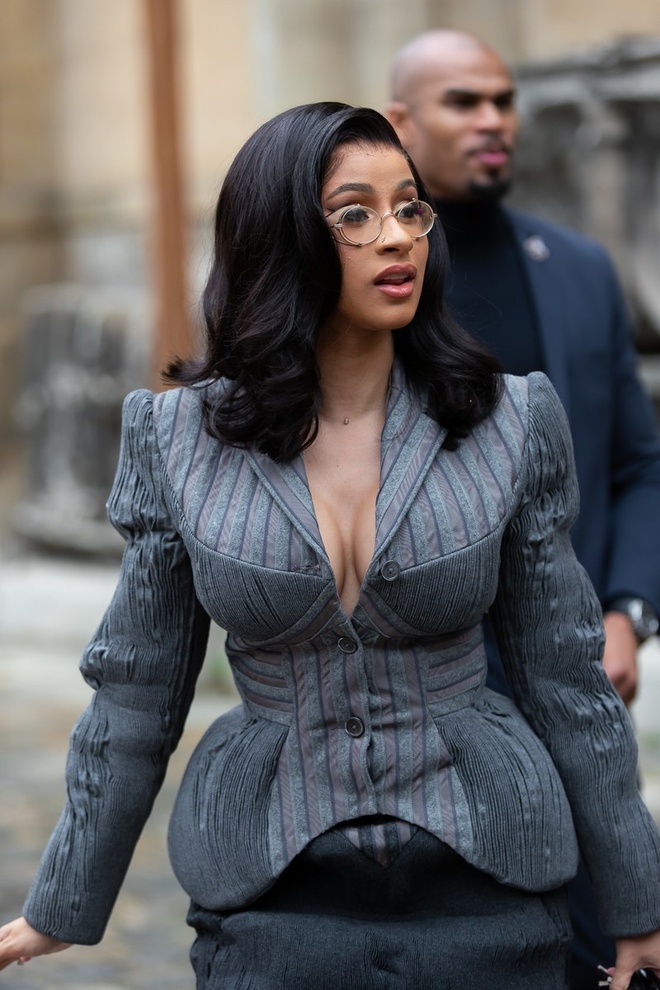In an era of increasing environmental awareness and ethical consumption, the rise of fast fashion has been under heavy scrutiny. Brands like Shein, known for their ultra-cheap clothing and questionable practices, have often faced criticism. Surprisingly, though, their ambassadors are not limited to everyday influencers looking for a paycheck; even celebrities with multimillion-dollar net worths, like Cardi B, are promoting such brands. This has sparked a heated debate about ethics, responsibility, and the confusing signals sent by high-profile figures.
Here's ads banner inside a post
The Controversial Campaign
The controversy began when Cardi B, whose net worth is estimated at $80 million, appeared in ads for Shein, a fast fashion giant infamous for its exploitative labor practices and environmental impact. The ads showcased Cardi B flaunting affordable coats, a stark contrast to her usual luxury lifestyle.
Social media erupted with criticism. Brett Staniland, a prominent TikToker and vocal advocate for sustainable fashion, led the charge. In his viral video, Staniland called out Cardi B for promoting a brand widely regarded as a symbol of everything wrong with the fast fashion industry.
“I don’t hold Cardi B to any type of standards when it comes to being an influencer, but even this seems incredibly low,” Brett captioned his video. His pointed remark reflects a growing sentiment among critics that celebrities, with their vast resources, should align their endorsements with higher ethical standards.
Here's ads banner inside a post
The Clash Between Luxury and Fast Fashion
Cardi B’s partnership with Shein is particularly baffling because of the jarring juxtaposition it creates. How does an artist known for flaunting Hermès bags and wearing designer outfits reconcile promoting $10 dresses? This contradiction isn’t lost on Staniland or others in the sustainability community.
Brett raised an important question about brand alignment: How can celebrities credibly endorse high-end luxury brands while simultaneously partnering with fast fashion? For many, this duality undermines their credibility and sends conflicting messages to their fans.
Here's ads banner inside a post

Celebrity Responsibility in the Age of Awareness
Cardi B’s decision to promote Shein has drawn intense scrutiny not just because of her wealth but because of the widespread availability of information about the brand’s reputation. Shein has been criticized for exploitative labor practices, including underpaid workers in unsafe conditions, and for being one of the worst offenders in environmental degradation. From microplastic pollution to massive textile waste, the brand epitomizes unsustainable practices.
As Brett aptly pointed out, “In the world of mass information that we live in now, there’s simply no way she can’t know about Shein’s reputation and operations; she just doesn’t care.”
The Backlash
The backlash was swift and intense. Fans and critics alike expressed their disappointment on social media platforms. Some even unfollowed Cardi B in protest. TikTok became a battleground for the debate, with users flooding Brett’s video with comments.
“Anything just for money. Even when u already have money,” one user lamented.
“Don’t celebrities watch documentaries?” another wondered. “Don’t they have internet to see how polluted the planet already is?”
Others called for accountability from luxury brands. “If designer brands had dignity, they would stop collaborating with any celebrity who promotes fast fashion,” a TikToker suggested.

The Ethical Dilemma of Fast Fashion
This controversy underscores a broader ethical dilemma facing the fast fashion industry and its patrons. Fast fashion thrives on cheap production, high consumption, and rapid turnover. While it offers affordability and accessibility, it comes at a high cost to the environment and workers in developing countries.
Shein, for instance, produces millions of items monthly, contributing to massive textile waste and pollution. According to reports, whales ingest up to 10 million pieces of microplastic daily — a sobering reminder of the environmental cost of our consumption habits.
Critics argue that celebrities like Cardi B have a responsibility to set a better example. With their influence and wealth, they are in a unique position to promote sustainable alternatives instead of perpetuating harmful industries.

Alternatives to Fast Fashion
For consumers looking to make more ethical choices, the options are growing. Supporting eco-friendly clothing brands that produce high-quality, sustainable garments is a good start. Many of these brands focus on fair trade practices and environmentally friendly materials, ensuring their impact on the planet and people is minimized.
Thrift stores and vintage shops also offer an excellent alternative. Not only do they reduce waste, but they also provide unique, one-of-a-kind pieces. As the fast fashion industry continues to face backlash, secondhand fashion is experiencing a resurgence, appealing to those who want to look trendy without compromising their values.
The Role of Governments and Consumers
Beyond individual choices, systemic change is needed to curb the impact of fast fashion. Governments can play a pivotal role by setting strict regulations on environmental and labor standards for clothing production. Incentivizing sustainable practices, such as tax breaks for eco-friendly brands or penalties for polluters, could push the industry toward a greener future.
Consumers, too, wield significant power. By holding celebrities accountable and prioritizing ethical brands, they can shift demand and force companies to adopt better practices. Awareness campaigns and education about the true cost of fast fashion can further empower people to make informed decisions.
:max_bytes(150000):strip_icc():focal(749x0:751x2)/cardi-b-tout-120624-c47a472fcd7b4ad9bbb54ed5e8c5628f.jpg)
The Bigger Picture
The Cardi B-Shein controversy is more than just a celebrity scandal; it’s a reflection of the tension between consumption and conscience in the modern era. As influencers and celebrities continue to play a major role in shaping consumer behavior, their choices carry weight far beyond personal branding.
While fast fashion may offer the allure of affordability and trendiness, it’s crucial to consider the larger impact of those choices. As one TikToker aptly put it, “Even if Cardi B wears Shein, you can do better.”
The challenge now is for consumers, brands, and celebrities alike to rise to the occasion and prioritize sustainability over short-term gains. Only then can we hope to reduce the damage caused by an industry that too often prioritizes profit over people and the planet.


